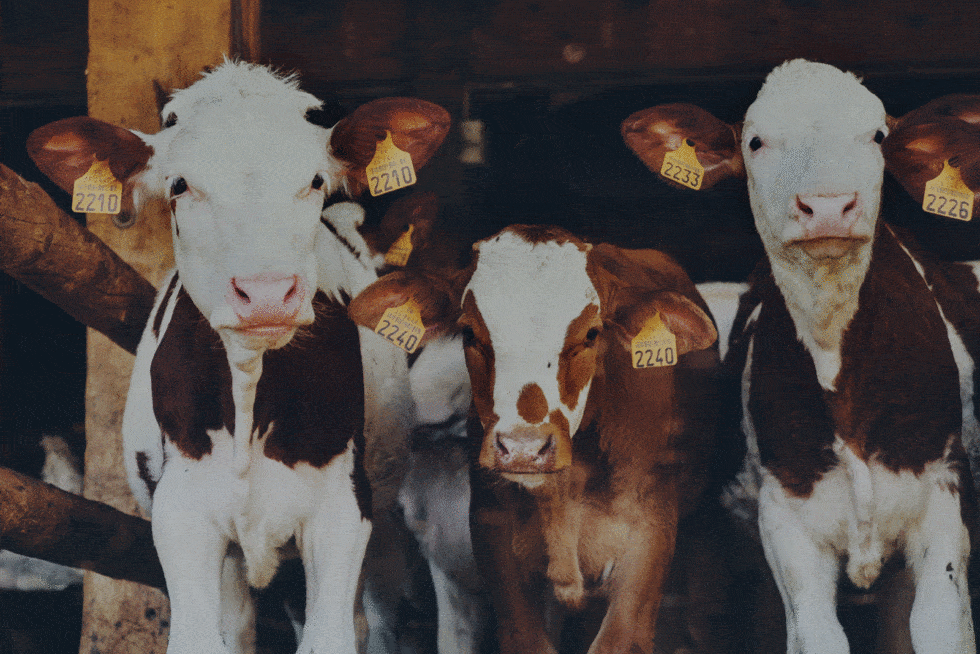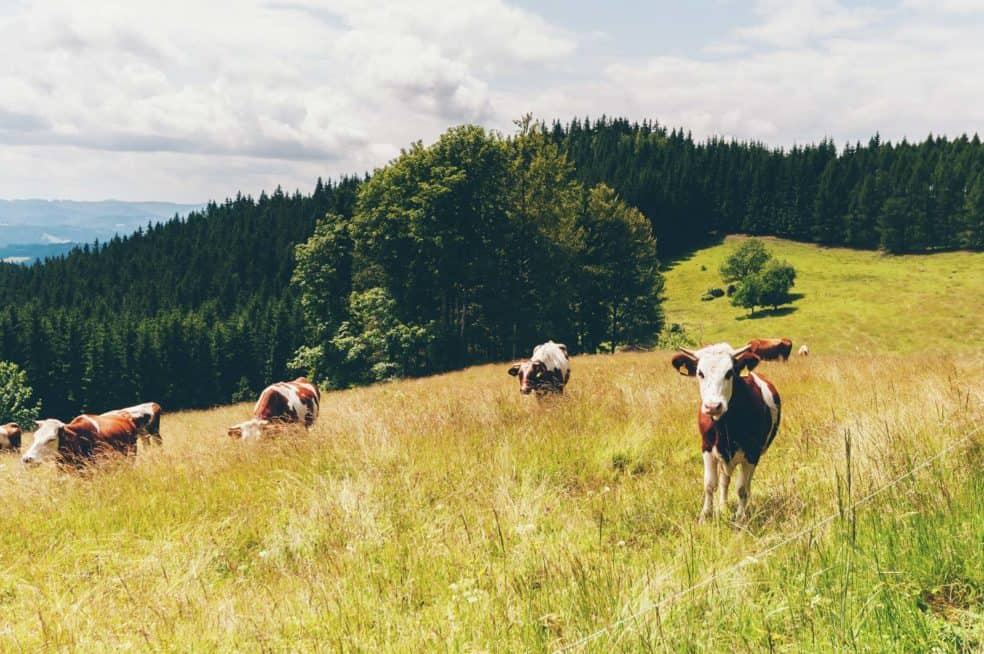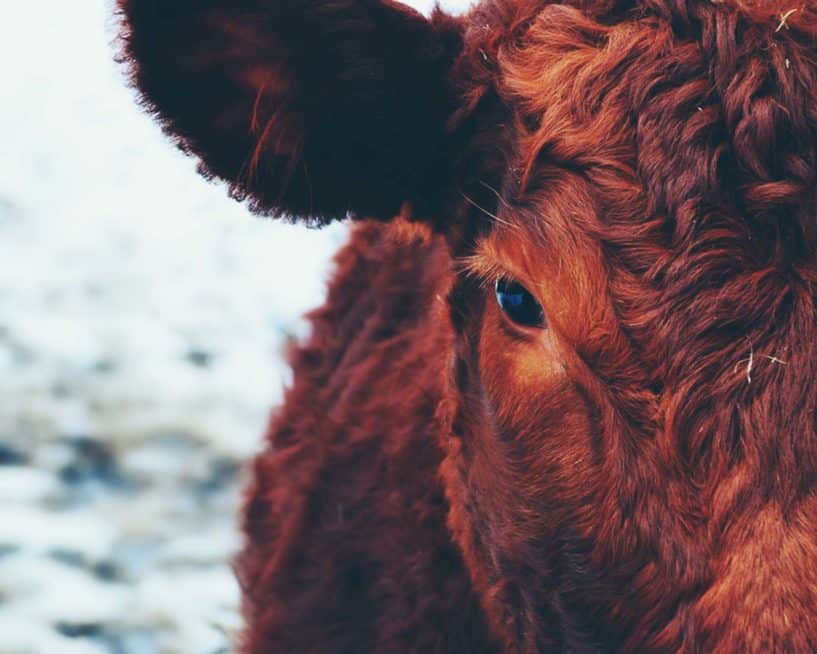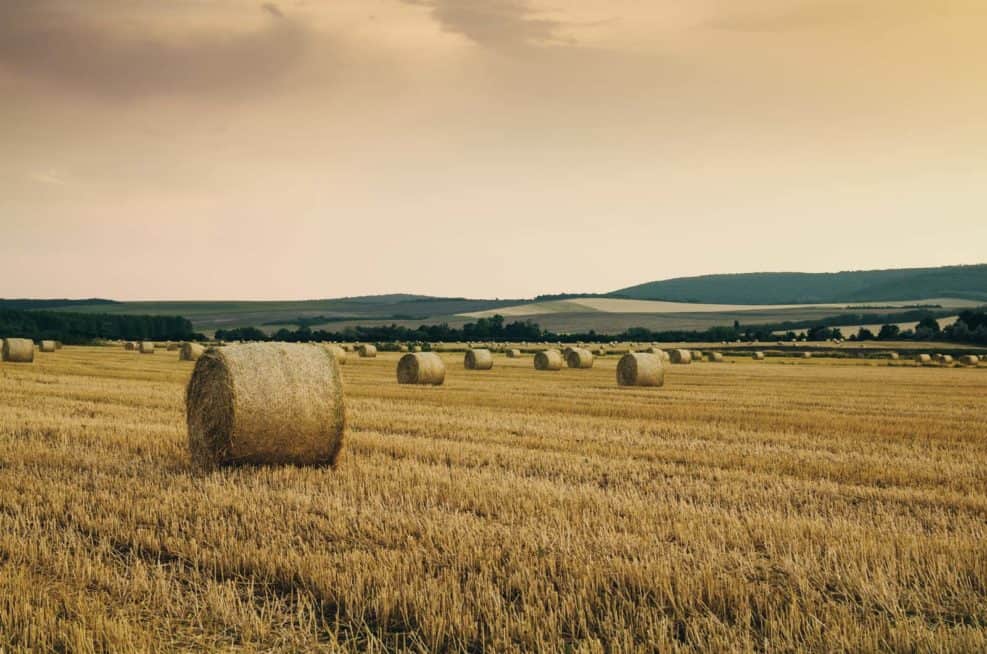Does Grass Fed Beef Have Fiber in It
The natural diet of beef cattle and dairy cows is grass and high-fiber forage. Beef and dairy products from cattle that were fed a 100% grass-based diet have important nutritional benefits, as well as animal health benefits. The "grass fed" claim on meat and dairy product labels should mean that the animals were raised on pasture (during the growing season) and fed only grass and forage, but this is not always the case. Consumers looking for 100% grass fed should look for a meaningful and verified label accompanying a "grass fed" claim, such as American Grassfed, PCO Certified 100% Grassfed or Certified Grassfed by AGW.
This label can be found on: Beef, mutton (sheep), goat, bison and dairy products.
ORGANIZATION:There is no single program or government agency behind the "grass fed" label.
Labels on meat with a "grass fed" claim have to be approved by the Food Safety and Inspection Service (FSIS), an agency of the U.S. Department of Agriculture (USDA). FSIS staff reviews a one-time application with supporting documentation supplied by the company making the claim.
Labels on dairy products are regulated by the Food and Drug Administration (FDA), which does not require prior approval or verification of a "grass fed" labeling claim. The FDA requires that labels on dairy products are truthful and not misleading but does not have a regulatory definition for the "grass fed" labeling claim.

What this label means
Beef and dairy cattle are ruminants, and their digestive systems have evolved to digest high-fiber and low-starch grasses. They gain weight more rapidly when they are fed grain in addition to grass, which has become standard practice in the beef and dairy industries. Grain-feeding comes at a cost to the nutritional value of the meat and dairy they produce, and the animals' health.
Meat: The US Department of Agriculture (USDA) requires prior review and approval of labels on meat products making a "grass fed" claim. The agency requires that "grass fed" or "100% grass fed" claims may only be applied to meat and meat product labels derived from cattle that were only (100%) fed grass (forage) after being weaned from their mother's milk. The diet must be derived solely from forage, and animals cannot be fed grain or grain by-products and must have continuous access to pasture during the growing season until slaughter.
Dairy: The Food and Drug Administration (FDA) oversees labels on dairy products, and has no regulatory definition of "grass fed" and no guidelines for producers making a "grass fed" claim. The FDA requires that labels on dairy be truthful and not misleading. Currently, the FDA has no position on whether the claim would be truthful and not misleading if dairy cows were allowed to graze on pasture and also fed grain in the diet. No verification is required for dairy producers making a "grass fed" labeling claim.

Why it matters
Nutritional benefits.Studies suggest that there are important health benefits from consuming 100% grass fed meat and dairy compared with grain fed meat and dairy. Studies have found that, compared to grain fed alternatives, grass fed meat contains lower levels of overall fat and higher levels of vitamins and antioxidants; grass fed meat and dairy have also been found to have higher levels of fatty acids, which appear to provide health benefits.
Animal health benefits.Ruminants on a grass-based diet without grain are less likely to suffer from gastrointestinal disorders such as acidosis. With acute acidosis, the acidity level and glucose levels in the animal's intestines increase markedly due to grain consumption, leading to damage to the intestinal wall or other health conditions.
Another health effect of a high-grain diet for cattle is a higher rate of liver abscesses. For prevention of liver abscesses in grain fed cattle, the FDA has approved numerous antibiotics that can be added to cattle feed – the same grain-based feed that is often contributing to the abscesses in the first place. Antibiotics approved for this purpose include the critically important antibiotics tylosin, ceftiofur, virginiamycin and chlortetracycline. A sustainable way to prevent liver abscesses is to promote healthy animals with a species-appropriate diet of grass and forage.
Greener Choices EVALUATION

How meaningful is this label?
"Grass fed" is a meaningful claim. On its own on a label, the claim is somewhat meaningful on meat, but not meaningful on dairy products.
On meat labels, producers can make a "grass fed" claim after submitting a one-time label application with the USDA, with required documentation to support that the "grass fed" claim means the animals were not given any grain. However, there is no requirement for on-farm inspections and no requirement for annual review or auditing of the producer's records to ensure compliance.
On dairy products, the "grass fed" claim is not verified and the FDA has no regulatory definition, so the label is not meaningful on its own. The FDA requires that labels on dairy be truthful and not misleading. Currently, the FDA has no position on whether the claim would be truthful and not misleading if dairy cows were allowed to graze on pasture and also fed grain in the diet. Some companies making a "grass fed" labeling claim on dairy products feed grain in addition to grass.
Consumers looking for 100% grass fed meat and dairy products should look for one of the meaningful labels listed below accompanying a "grass fed" claim.
Consumers should look for the following additional labels or seals, which are highly meaningful:
PCO Certified 100% Grassfed
The PCO Certified 100% Grassfed label is highly meaningful and verified. It means that the animals were fed only grass and forage with no grain. The animals were also raised according to USDA Organic standards, which promote a sustainable system of agriculture. Organic regulations prohibit administering antibiotics, hormones and growth promotants, treating pasture with synthetic herbicides, planting genetically engineered plants such as alfalfa in pasture, and much more.
American Grassfed
The American Grassfed label is highly meaningful and verified. It means that the animals were grass-fed throughout their entire lives (after weaning), with no grain ever. The animals had continuous access to pasture and were not raised in confinement. The standards also prohibit antibiotics, growth hormones and growth promotants, and the intentional feeding of GMOs.
Certified Grassfed by AGW
The Certified Grassfed by AGW label is highly meaningful and verified. It means that the animals producing meat or dairy with the label were fed a 100% grass and forage based diet, with no grain.[A page 1] Certification for this label is only granted to producers who are also certified to the species-specific Animal Welfare Approved label standards. We rate Animal Welfare Approved as a highly meaningful label for animal welfare.
NOFA-NY Certified 100% Grass Fed
The NOFA-NY Certified 100% Grass Fed label is highly meaningful and verified. It means that the animals used to produce meat and dairy were raised on certified organic farms, and in addition, meat animals must be fed 100% grass or grass-based feed for the entire life of the animal with the exception of milk prior to weaning. Dairy cows must be managed on 100% grass or grass-based feeds for at least 90 days before being eligible to sell milk as NOFA-NY Certified 100% Grass Fed.
The following additional seals and labels mean that the grass fed claim has been verified:
USDA Process Verified
Producers making a "grass fed" claim can choose to have this claim verified by the Agricultural Marketing Service (AMS, an agency at the U.S. Department of Agriculture) through its Process Verified Program. As of November 2016, only one producer of grass fed beef has its label verified through the USDA Process Verified Program. The USDA Process Verified Program allows producers to write their own standard; the "grass fed" standard for this producer is: "All animals in the program have been grown, raised and fattened on a grass (forage) diet."

Is the label verified?
Sometimes.
Meat. Producers making a "grass fed" claim on a meat label are required to obtain prior approval from the U.S. Department of Agriculture. To obtain approval, producers have to submit written documentation including:
- A detailed written description explaining controls for ensuring that the raising claim is valid from birth to harvest or the period of raising being referenced by the claim; (e.g., controls to ensure cattle that are supposed to be raised 100% grass fed are not fed grains);
- A signed and dated document describing the diet of the animals to support that the claims are not false or misleading;
- A written description of the product tracing and segregation mechanism from time of slaughter or further processing through packaging and wholesale or retail distribution; and
- A written description for the identification, control, and segregation of nonconforming animals/product.
No additional verification or on-farm inspection is required for producers making a "grass fed" claim.
Dairy. For dairy products, which are regulated by the Food and Drug Administration (FDA), label approval and verification is not required.
Is the meaning of the label consistent?
No.
On meat, the USDA allows variations of the claim, such as "grass fed 100 days prior to slaughter." The agency requires that the variation be indicated on the label but does not set a standard or define these variations. While the USDA allows variations, we are not aware of any producers currently making claims such as "grass fed 100 days prior to slaughter."
The label can have a different meaning for meat, when it is regulated by the U.S. Department of Agriculture, than dairy, when it is regulated by the Food and Drug Administration and not defined.
Are the label standards publicly available?
N/A. There is no regulatory definition for the "grass fed" labeling claim.
Is information about the organization publicly available?
N/A. There is no single program or government agency behind the "grass fed" label.
Is the organization free from conflict of interest?
N/A. There is no single program or government agency behind the "grass fed" label.
Was the label developed with broad public and industry input?
No.
For meat, the USDA accepts comments from the public on guidelines for special claims related to how animals are raised, which include guidelines for the "grass fed" labeling claim. However, the USDA allows companies to make variations of the claim, such as "grass fed 100 days prior to slaughter," which were not developed with broad public and industry input.
For dairy, the FDA has no regulatory definition for the "grass fed" label and allows each company to determine its own definition of the labeling claim.
Source: https://www.greenerchoices.org/grassfed-general-claim/
0 Response to "Does Grass Fed Beef Have Fiber in It"
Post a Comment